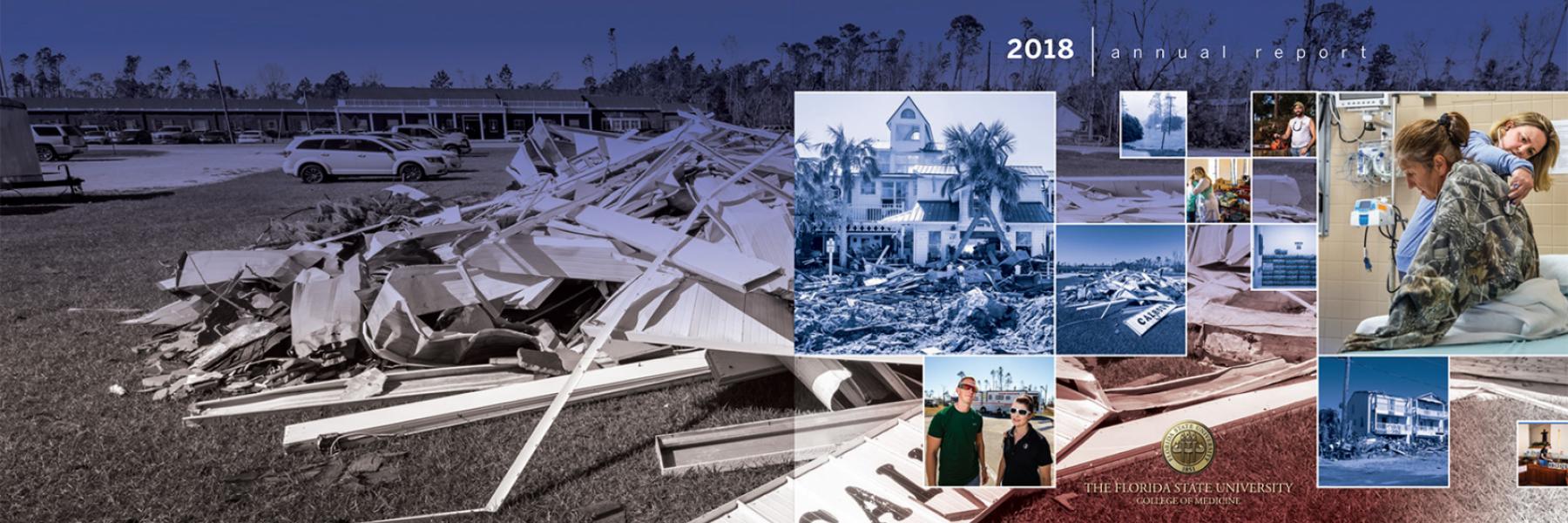Main navigation
- About Us About Us
- Campuses Campuses
- Academics Academics
- Admissions Admissions
- Research Research
- Library
- Giving

With Port St. Joe under mandatory evacuation, Rachel Bixler and Josh James (both M.D., ’11) weathered the storm farther inland. Their home suffered roof damage. Their town, though, was clobbered.
Mary Watson (M.D., ’09) is practicing emergency medicine in a small-town hospital with few resources, but she says the medical team’s loyalty to the community is unmatched. For much of the time right after the storm, she was the only M.D. on duty.
Robin Albritton (M.D., ’07) grew up in Marianna and has practiced family medicine there since completing his residency. This interview took place two months after Hurricane Michael, so he could evaluate its impact on his hometown.
Matthew Buck (M.D., ’10) lives more than 100 miles from the Gulf Coast. Yet he, too, had to rely on his medical training – and his chainsaw skills – when Hurricane Michael blew into Georgia.
Umar Karaman (M.D., ’13), a urologist in Panama City, emailed us these comments in January, three months after the storm.
Chief Medical Officer Kim Landry (M.D., Program in Medical Sciences ’86) saw Panama City patients after Hurricane Michael even though he was more than 100 miles away in Pensacola.
Most people are familiar with the term “brain dead” and its implications for taking a person off life support or for organ donation. Fewer people know the history and current controversies behind the legal and medical definition of brain death.
Office Contacts